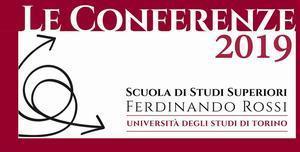3/7 - Production Theory, S. Settepanella, Hokkaido University

3rd July 2019 – 3:00 p.m.
Università di Torino | seminar room 1.05 | Via S. Ottavio 54, Torino
Production Theory:
a new geometrical model to assess productivity in presence of heterogenous firms
in collaboration with Collegio Carlo Alberto
prof. Simona Settepanella, Hokkaido University
Introduces prof. Annamaria Fino, Department of Mathematics - UNITO
In Sciences and Social Sciences great progresses arrived when new mathematics met old problems or, equivalently, when scientists have been able to approach old problems by different point of view.
Many problems in the social and system sciences are naturally multivariate and not easily approximated by continuous or statistical methods. Subjects like multi-attribute utility, multi-objective programming, multi-person game theory, etc., could greatly benefit from models based on higher-dimensional geometry. In this talk we will illustrate an example of this by describing an higher dimensional geometry model applied to the study of multi-factor productivity.
More in detail, productivity, object of study in Production Theory, is the “ability" of converting inputs into outputs and it is linked to the study of productivity growth and, hence, of economic growth.
In multi-factor productivity (i.e. more than 1 input and 1 output), productivity is measured by mean of a continuous function, called production function. However the conditions required to use continuous methods are very demanding. As an example, continuous approximation requires to assume that in a given industry all firms are homogeneous (e.g. it is like to assume that Google is similar to a start up, maybe founded by 3 students, producing apps ) while collected data and evidences seem to show the existence of an high degree of heterogeneity.
During this talk we will see a new geometrical model that allows to study productivity in presence of heterogeneity, that is, more in general, how the use of an higher-dimensional geometric framework allows to study productivity and productivity growth with lesser assumptions on reality than a continuous one.
This seminar is based on joint works with G. Dosi, M. Grazzi, L. Li and L. Marengo.





